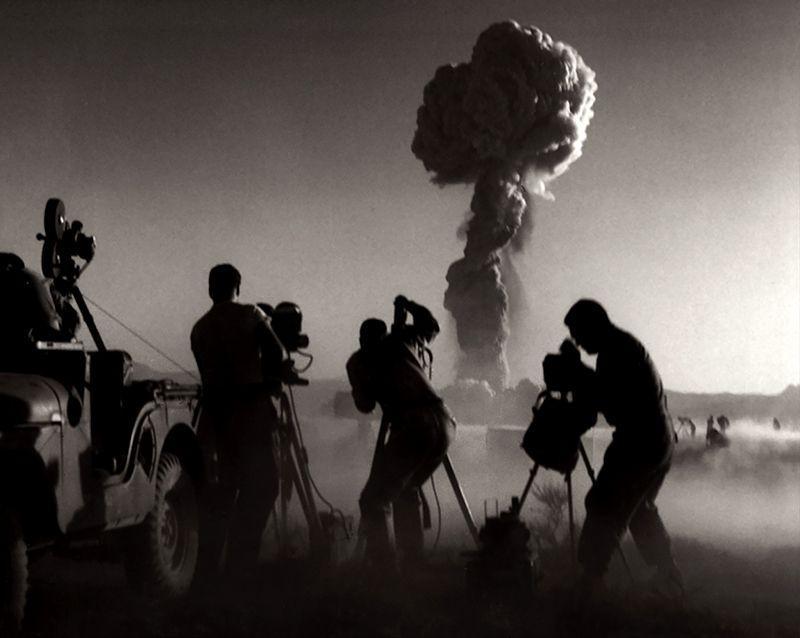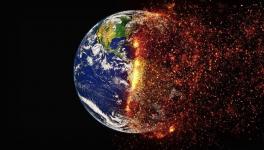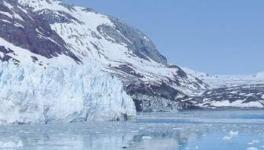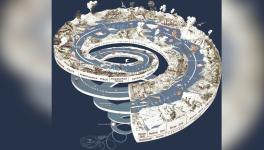Anthropocene: The Human-made Epoch?

Image courtesy: Nature. Image for representational use only.
In the geological time scale, planet Earth has entered the era where human activities tend to have overwhelming control over the geological or the earth system. It is marked by atomic weapons, industrial smogs, carbon emission, and plastic trash, etc. And the changes wrought by human activities are going to persist for a very long time to come, probably some centuries. Through mining activities alone, humans have moved more sediment than all the world’s rivers combined, warmed the planet, raised sea levels, eroded ozone layer and acidified the oceans.
Scientists are now proposing to declare that Earth has entered the epoch named as ‘Anthropocene’. Coined by Paul Crutzen and Eugene Stoemer some 19 years ago, Anthropocene denotes the current geological time interval, where many conditions and processes on Earth are impactfully altered by human activities.
It was few days back when 88% of the Anthropocene Working Group (AWG), the panel that consists of 34 scientists and academics, voted in favour of making Anthropocene a formally defined geological unit within the official geological time scale. While this is a significant development, formal declaration of the current geological time period as the Anthropocene may take some more time as it will have to be considered by several more groups of the International Commission on Stratigraphy (ICS). The International Commission on Stratigraphy is the largest and oldest constituent scientific body in the International Union of Geological Sciences (IUGS). Its primary objective is to precisely define global units (systems, series, and stages) of the International Chronostratigraphic Chart that, in turn, are the basis for the units (periods, epochs, and age) of the International Geologic Time Scale; thus setting global standards for the fundamental scale for expressing the history of the Earth.
The Geological Time Scale
Earth’s geological history in terms of the changes that have taken place since the beginning is systematised in the geological time scale (GTS). From the evidences of radiometric dating, the age of planet Earth is calculated to be 4.54 billion years. The GTS encompasses the geology or deep time of Earth’s past by organising the past events into various units. Each unit corresponds to different spans of time marked by corresponding changes in the composition of strata that indicates major geological or paleontological events.
The primary divisions in the GTS are the eons which are further divided into eras, which again are divided into periods, epochs and ages.
Also Read: Nature in Most Perilous State Ever, Says IPBES Global Assessment Report
Technically, we are in the Holocene epoch presently that started around 11,700 years back at the end of the major glacial epoch, the Ice Age.
Why the New Definition of the Epoch?
Paul Crutzen, the Nobel Laureate, who coined the term Anthropocene, wrote in 2011 — “It’s a pity we’re still officially living in an age called the Holocene. The Anthropocene – human dominance of biological, chemical and geological processes on Earth – is already an undeniable reality. Evidence is mounting that the name change suggested by one of us more than 10 years ago is overdue,” Paul Crutzen, the Nobel Prize-winning scientist who first coined the term “Anthropocene”.
“Albeit clumsily, we are taking control of Nature’s realm, from climate to DNA. We humans are becoming the dominant force for change on Earth”—Crutzen said further.
Anthropocene has taken on a range of meanings, the most profound being the anthropogenic climate change. Industrial activities performed by humans have pumped so many greenhouse gases like carbon dioxide and methane that it has altered the composition of the atmosphere, which caused global warming by strengthening the greenhouse effect.
However, the term goes beyond the climate change crisis. The surface geology of Earth now has new array of artificial radionuclides that sprinkled from the thermonuclear bomb tests of the latter half of the 20th century’s. The oceans have become littered with many new minerals, most importantly concrete, fly ash and plastics.
Also, we are witness to the colossal changes to the Earth’s biology. A recent UN report says that nature is in the most perilous state ever when over 1 million species are on threat to go into mass extinction due to human activities.
Declaring it as ‘Anthropocene’ might take some time, but scientists believe that doing so would help in studying the planet and also increase awareness towards humanity’s role in changing the planet permanently.
Get the latest reports & analysis with people's perspective on Protests, movements & deep analytical videos, discussions of the current affairs in your Telegram app. Subscribe to NewsClick's Telegram channel & get Real-Time updates on stories, as they get published on our website.
























